Written by Gilbert Ganing & Rabiatul Adawiyah Marzuki
On 14th and 15th May 2025, the Faculty of Social Sciences and Humanities, Universiti Malaysia Sarawak (UNIMAS) echoed not with applause or celebration and the hypes, but with arguments, rebuttals, and the fierce sound of reason between two groups debating their points of view. The occasion was LENSA DEBAT FOSSH 24/25: Pertembungan Suara Anak Bangsa, an inter-varsity debate tournament organized by the POLGOV Society, in collaboration with the Social Sciences and Humanities Student Association (PSSK). This event was part of the annual Festival of Social Sciences and Humanities (FOSSH) for 2024/2025 session. More than just a competition, this event stood out as a bold testament to youth intellectualism, civic engagement, and academic excellence.
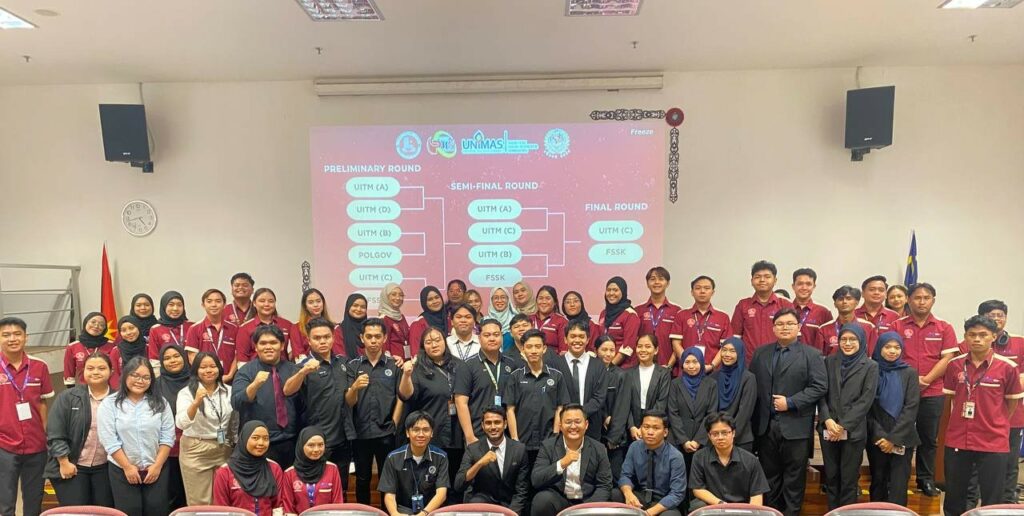
The tournament featured two participating institutions: Universiti Malaysia Sarawak (UNIMAS) as host, and Universiti Teknologi MARA (UiTM) Sarawak, both of which brought dedication, preparation, and spirited engagement to the competition. Though compact in scale, the event succeeded in delivering a high-impact showcase of student discourse.
The focused format did not diminish the tournament’s intensity or depth. On the contrary, it allowed for deeper engagement, more rigorous debates, and a more enriching learning environment. Each round challenged debaters to explore complex issues, from governance reform to youth political participation, encouraging critical thinking and articulate advocacy. With fewer teams, judges, audiences, and organizers were able to give greater attention to each match, fostering detailed feedback, closer mentorship, and stronger peer connections. This concentrated setting transformed the tournament into an intimate yet powerful intellectual arena; one where ideas could be sharpened, voices amplified, and student perspectives heard with clarity and purpose.
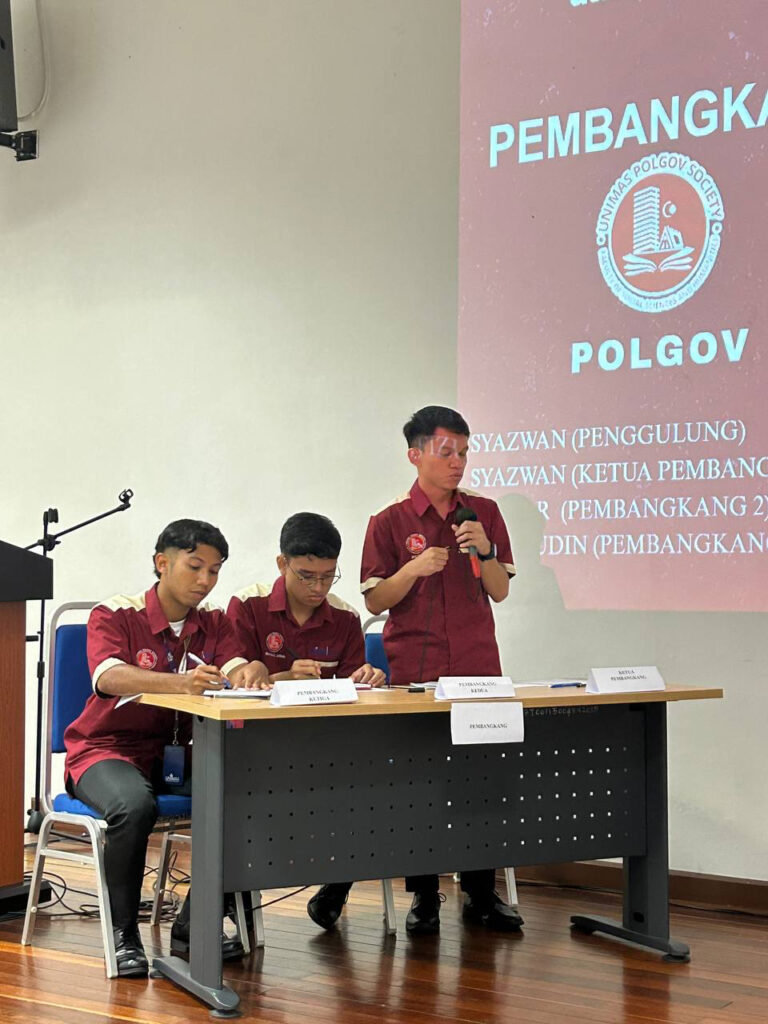
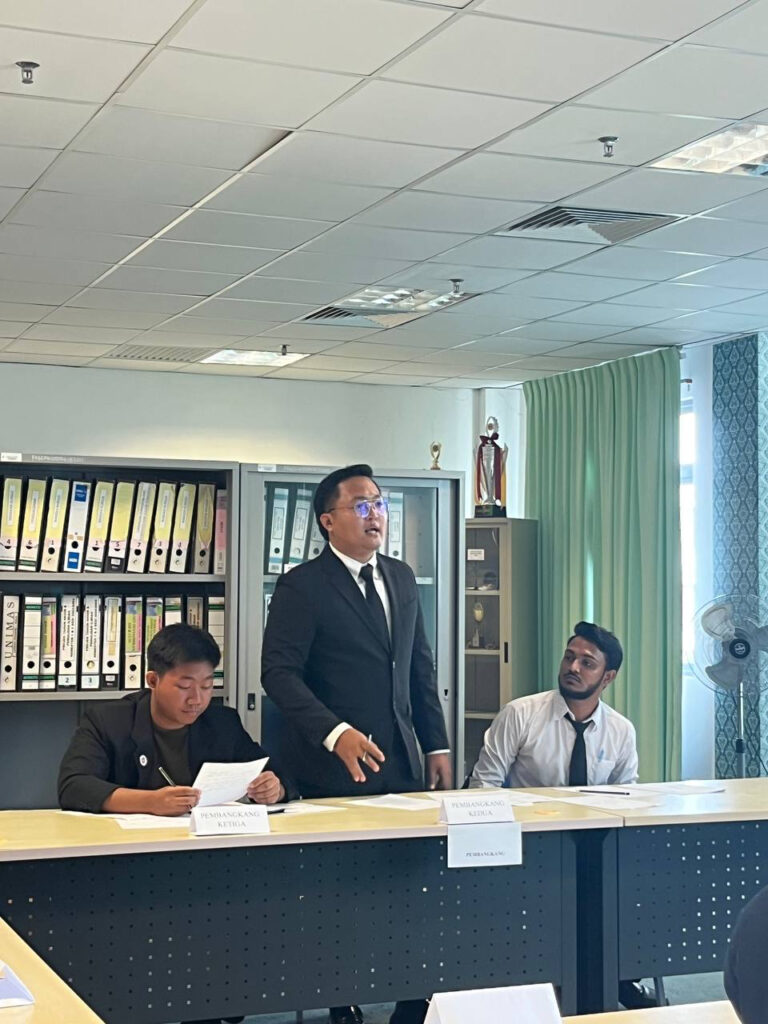
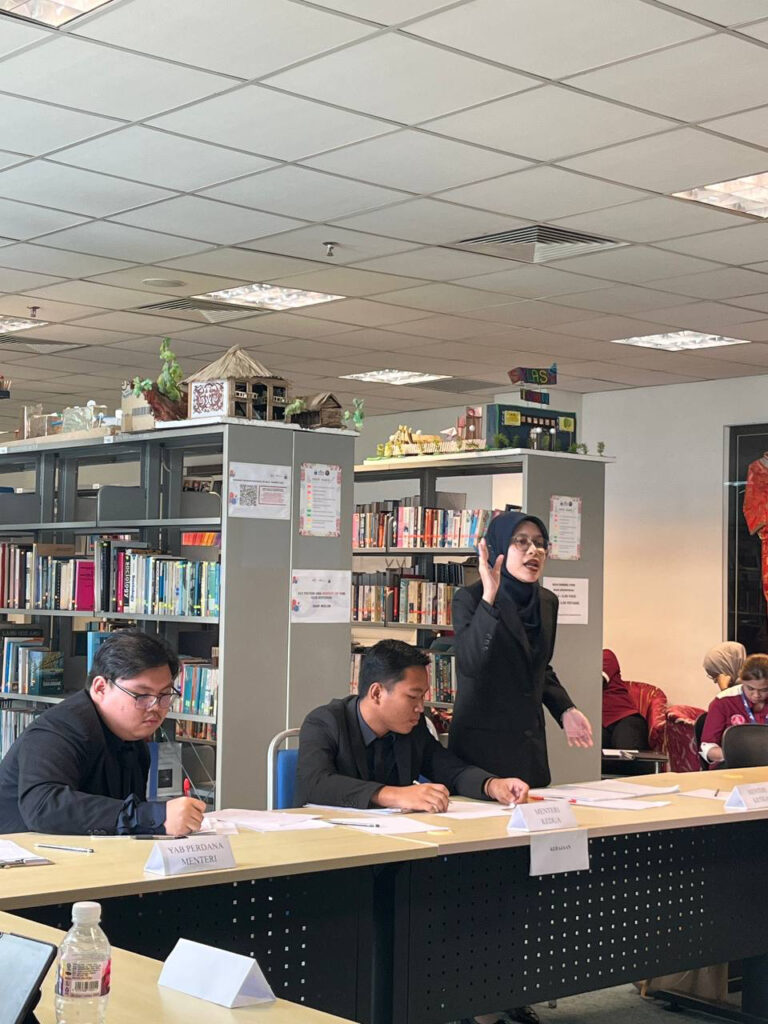
Moreover, the quality of debate and the professionalism displayed by students from UNIMAS and UiTM Sarawak demonstrated that impact is not measured by numbers alone. These participants embodied the qualities of youth leadership in a democratic society: bold in expression, open in thought, and committed to pursuing truth through reasoned dialogue.
A Platform for Critical Thinking and Nation-Building
In a time when public discussions are often filled with negativity, division, and surface-level opinions, especially online, LENSA DEBAT FOSSH offered something different: a space for respectful and thoughtful debate. The theme, “Pertembungan Suara Anak Bangsa” (The Clash of the Nation’s Youth Voices), captured the program’s purpose well, which is to give young people a chance to challenge each other’s ideas in a healthy and constructive way. It wasn’t about winning arguments, but about learning, growing, and contributing to Malaysia’s democratic values.
During the event, students took part in parliamentary-style debates on topics such as national development, good governance, and youth involvement in politics. With only 20 minutes to prepare before each round, participants had to think fast, work as a team, and speak clearly under pressure. This fast-paced format tested not just their knowledge, but also their quick thinking, confidence, and ability to express ideas clearly in front of both their peers and a panel of judges.
This demanding structure pushed participants to operate at a high cognitive level, fostering not just academic excellence but critical soft skills such as teamwork, time management, and emotional intelligence. Teams had to brainstorm, assign speaker roles, develop coherent arguments, anticipate rebuttals, and fine-tune their messaging, all within a tight timeframe. The pressure of real-time decision-making mimicked real-world challenges, especially in fields like policymaking, law, media, and public service, where quick, reasoned judgment is essential. As a result, students were not just debating; they were training to become agile thinkers and effective communicators, capable of making a strong case under any circumstances.
Moreover, the intensity of this format brought out the best in many participants, sparking moments of brilliance in the way they structured arguments, countered opposing points, and appealed to logic and emotion alike. Debaters learned to listen actively, identify logical fallacies, and refine their stance on-the-go skills that extend far beyond the debate hall. The live audience, comprising fellow students, lecturers, and adjudicators, further heightened the stakes, teaching participants how to perform under scrutiny while staying grounded in their arguments. This environment nurtured not just articulate speakers, but thoughtful leaders who could represent their generation with intellect and confidence.
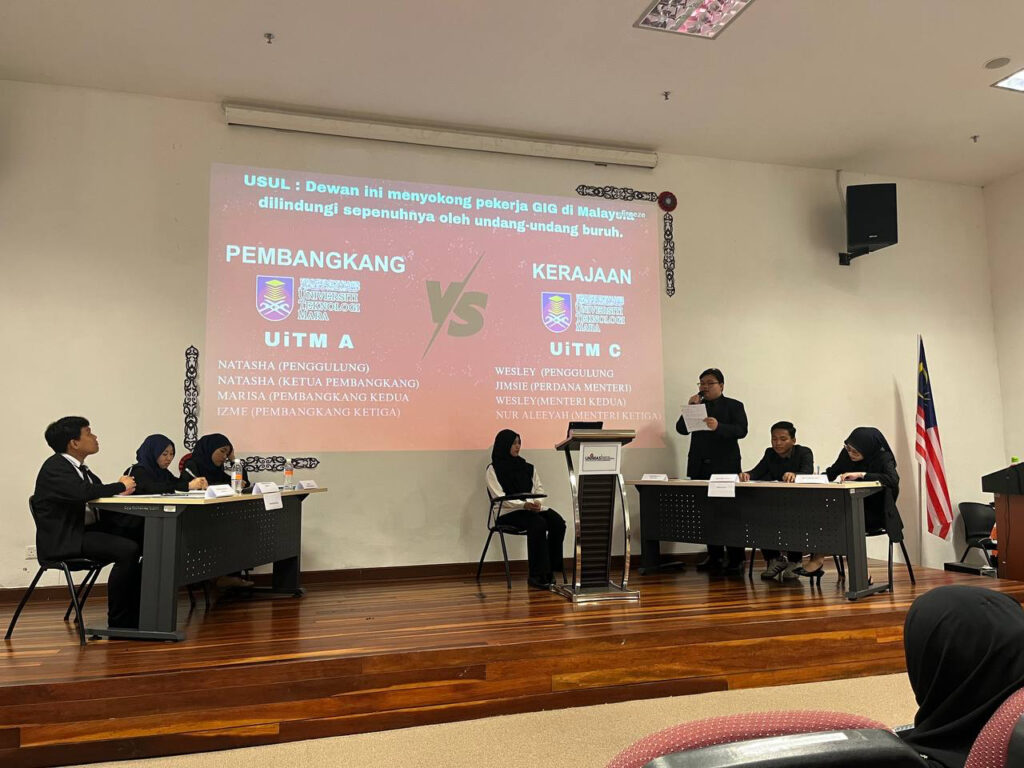
Educating the Mind Beyond the Classroom
LENSA DEBAT FOSSH strongly resonated with the goals set out in the Sustainable Development Goals (SDGs) of the United Nations, particularly SDG 4: Quality Education, SDG 16: Peace, Justice and Strong Institutions, and SDG 17: Partnerships for the Goals. These goals, though global in nature, found tangible expression within the walls of the university through initiatives like this debate tournament.
Through its student-led, debate-based format, the event embodied SDG 4, promoting inclusive and critical education. It served as a dynamic learning space where students applied classroom knowledge to real-world issues, developed independent thinking, and explored complex political, social, and economic challenges. The diverse debate topics encouraged interdisciplinary learning, sharpening both cognitive and emotional intelligence and preparing students for informed leadership.
SDG 16 came to life through the peaceful, structured clash of ideas. The parliamentary-style debates mirrored democratic processes, promoting civil discourse, fairness, and respect for opposing views. Students learned to engage with logic, ethics, and evidence which are skills vital for civic participation and public responsibility.
The event also demonstrated SDG 17 through strong collaboration between student bodies, faculty, and external partners. Although participation was limited to UNIMAS and UiTM Sarawak, the teamwork involved—from organizing logistics to involving alumni and professional judges—highlighted the power of partnerships. These cross-sector efforts enhanced learning, built trust, and laid the foundation for LENSA DEBAT FOSSH to evolve into a broader platform for youth civic engagement in the future.
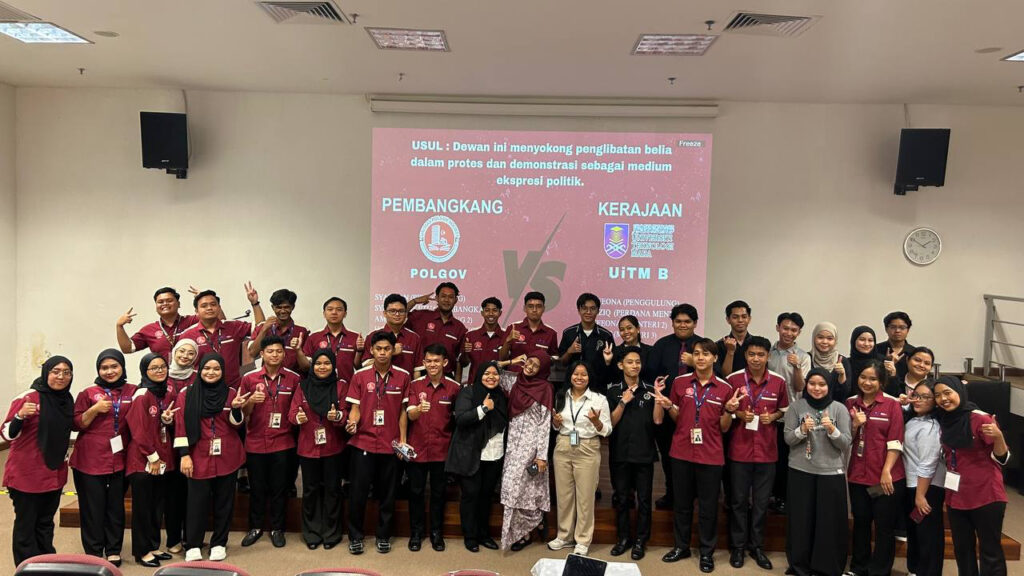
Debate Club, DE’ORATORS as Judges
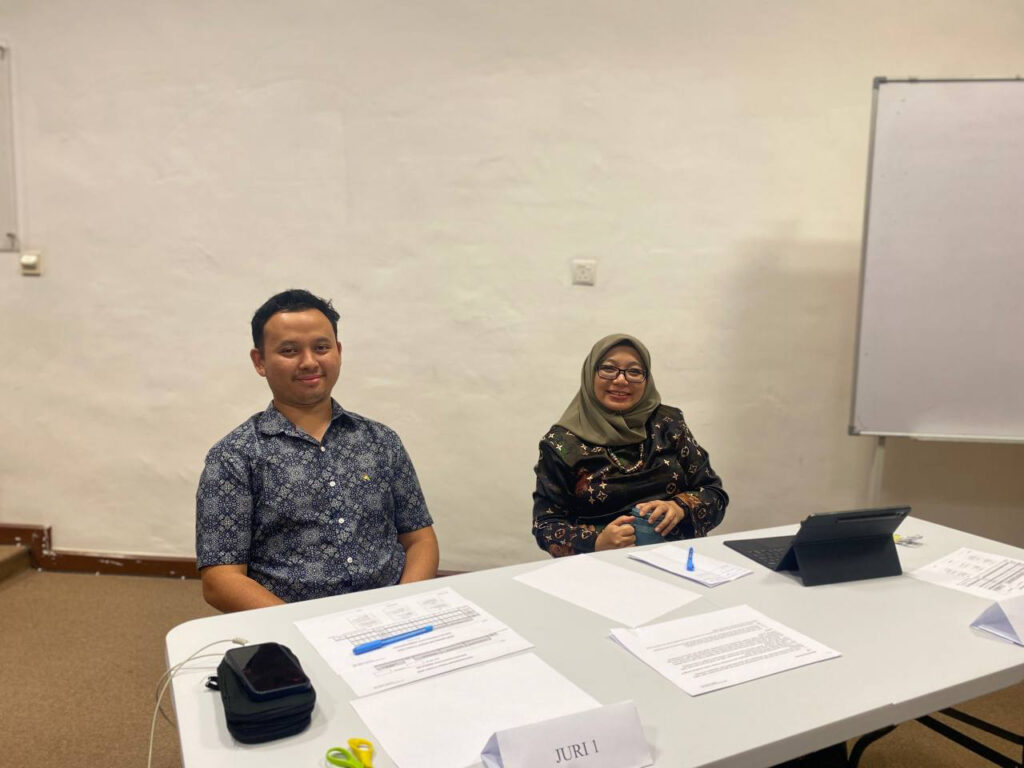
BMM2
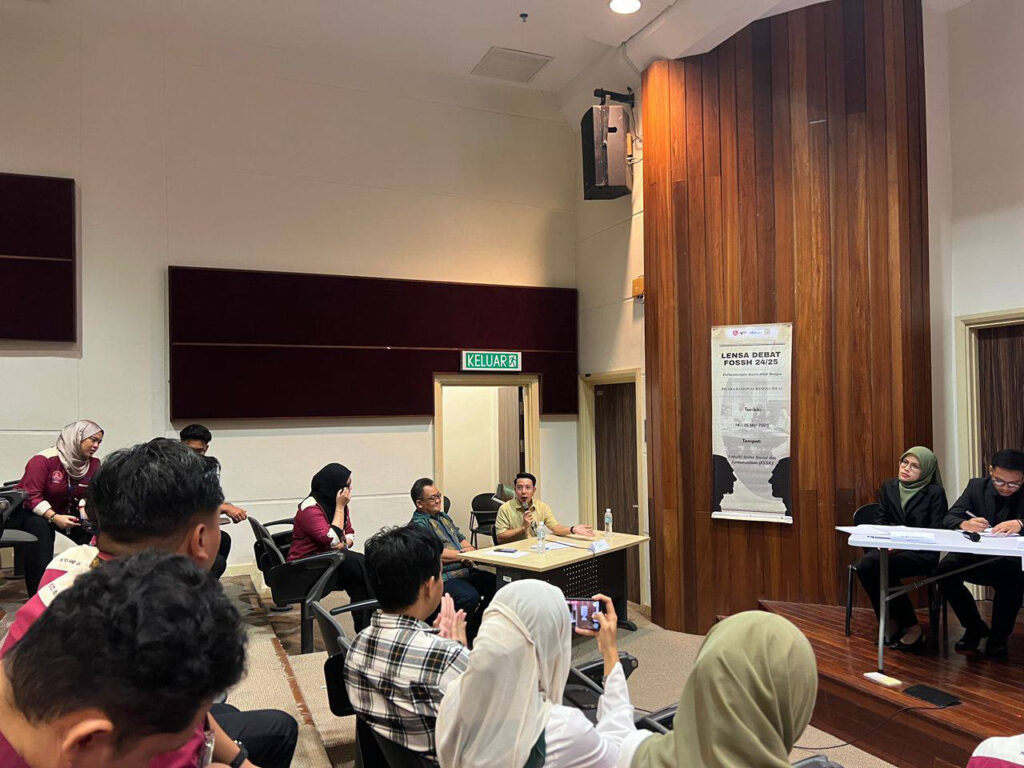
FELC and also the coordinator of the UNIMAS Debate Club, DE’ORATORS.
In summary, LENSA DEBAT FOSSH 24/25 did more than echo the SDGs. In fact, it actively embodied them. It showed how global development goals can be meaningfully translated into local, youth-driven initiatives. By blending education with empowerment, dialogue with discipline, and competition with collaboration, the program served as a microcosm of a future Malaysia—one that is more informed, engaged, and guided by strong ethical values.
Structured for Impact: A Dynamic Tournament Format
The program ran smoothly over two days, using a league format in the early rounds before transitioning into knockout stages for the semifinals and finals. A total of six teams participated, including two from UNIMAS and four from UiTM Sarawak. Each team consisted of three main speakers and one optional reserve. The debates were delivered entirely in Bahasa Malaysia, reinforcing national linguistic identity while maintaining academic rigor.
The scoring system evaluated not just the content of the arguments but the structure, style, and teamwork. Judges drawn from UNIMAS faculty and alumni included figures such as Professor Datu Dr. Neilson Ilan Mersat, Dr. Hafizan Mohamad Naim, and Mr. Mohd Hairee bin Abdullah and even from De’Orators Club, all of whom brought critical expertise and feedback to the event.
Equally impressive was the student-led organization behind the tournament. Spearheaded by Putri Izzati Aiyani Binti Rujissmany@Kinon as Program Director and Muhammad Syahaidil Fahmy Bin Helmi as Deputy Director, the committee comprised over 40 POLGOV Society Cabinet students volunteer handling logistics, media, protocol, hospitality, and technical operations. It was a masterclass in student leadership and team coordination.
Their efforts reflected the MADANI spirit of inclusiveness and responsibility. Rather than rely entirely on faculty or external contractors, the students themselves ensured the event’s success a reminder that young people are not just passive learners but active contributors to campus life and national discourse.
These topics are not abstract or hypothetical, they are real issues that affect Malaysians daily. That students engaged with them so thoroughly signals a generation that is informed, opinionated, and prepared to take responsibility.
Voices from the Floor
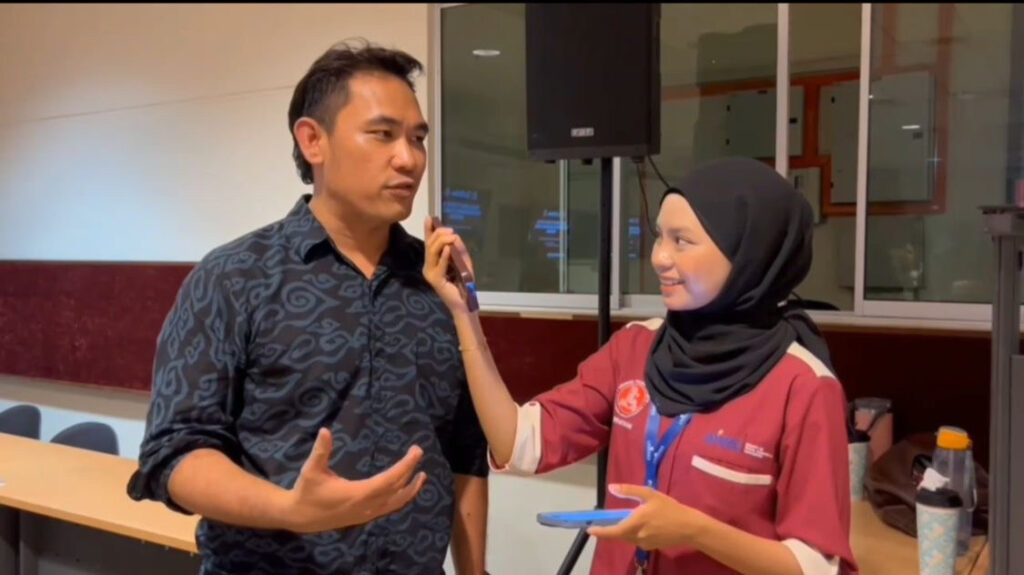
Branch
The impact of the program was felt not only in the words spoken during debates but in the sentiments expressed afterward. According to Mr. Mohammad Syafie Hamdan as debate advisor of UiTM Sarawak Branch, LENSA DEBAT FOSSH is one of the best events that has great preparation and did compliment the effort of organizing this event to make debate known to others.
“I want to thank the organizers for their efforts. This event preparation was among the best I’ve ever seen, in my opinion. Congratulations on your hard work. It was quite impressive how you all made debate more popular in Malaysia, particularly in Sarawak, where there aren’t many debate competition possibilities. Being a part of this competition makes me very happy and appreciative, and I genuinely hope that it becomes a long- lasting tradition for the university,” he said during the interview with POLGOV Society’s Exco Media.
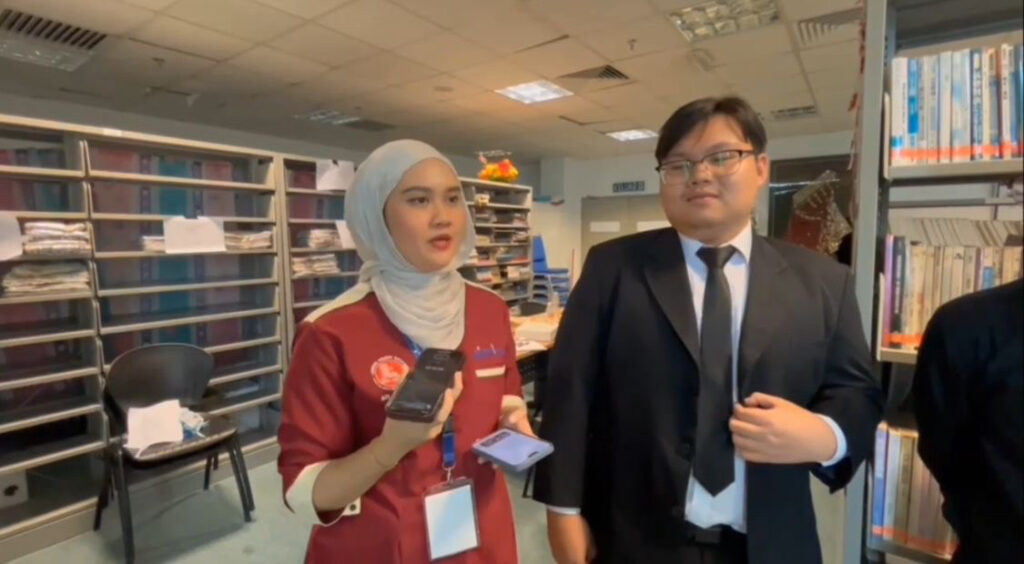
A participant from UiTM Sarawak added, “We may have come as guests, but we leave as part of a growing network of student leaders who care deeply about Malaysia’s future. This was more than a competition; it was an education in citizenship. In my opinion, it may develop students who can think sensibly and critically, establish self-confidence in public speaking, and assist mould clever and capable university students.”
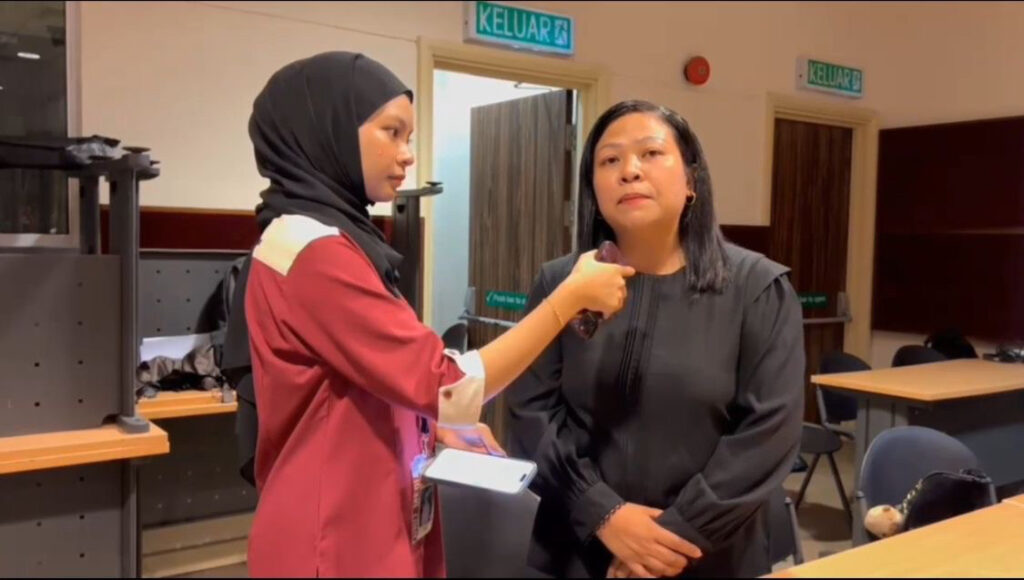
The students’ performances left a strong impression on the faculty members. Dr. Leha Saliman, a lecturer and one of the judges, noted, “All participants showed a solid understanding of the issues discussed, with well-structured and convincing arguments. Their debating skills were evident in both delivery and rebuttals. The teams from UNIMAS and UiTM Sarawak stood out in particular, demonstrating clarity, confidence, and strong reasoning that elevated the overall standard of the competition. Their ability to engage critically with complex topics was impressive and showed great potential. This reflects the growing strength of debate culture among university students in Sarawak.”
The organizers are hopeful that LENSA DEBAT FOSSH will not be a one-off triumph but the beginning of a sustainable tradition. Plans are underway to expand future editions to include other universities across Borneo and even Peninsular Malaysia. LENSA DEBAT FOSSH 24/25: Pertembungan Suara Anak Bangsa was more than an academic competition. It was a celebration of youth agency, a training ground for future leaders, and a beacon of hope for those who believe that thoughtful dialogue is still possible in our noisy, divided world.
Through the alignment with global goals like the SDGs and the national philosophy of Malaysia MADANI, the event served as a blueprint for how higher education can cultivate both intellect and integrity. It reminded all involved that the voice of the youth is not merely loud it is meaningful, principled, and filled with the potential to reshape Malaysia’s future.
As the curtains closed and participants took one last photo at Faculty of Social Sciences and Humanities, the message was clear: in a democracy, every voice matters but the voice of an informed, compassionate, and empowered student is the one most likely to make lasting change.
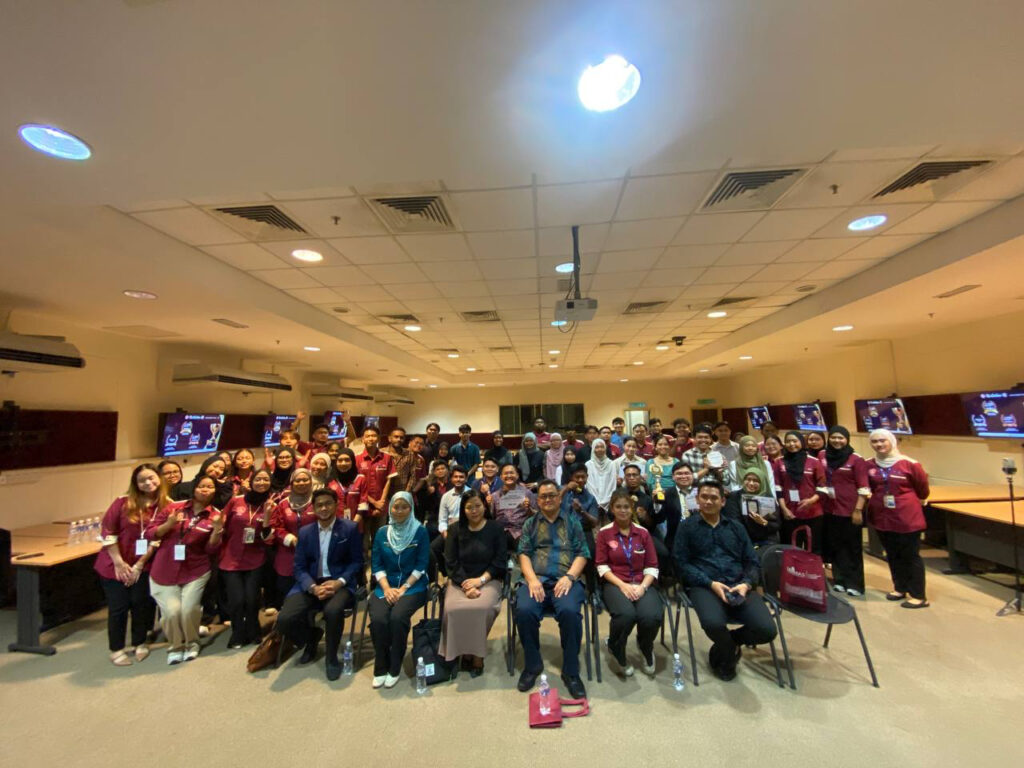
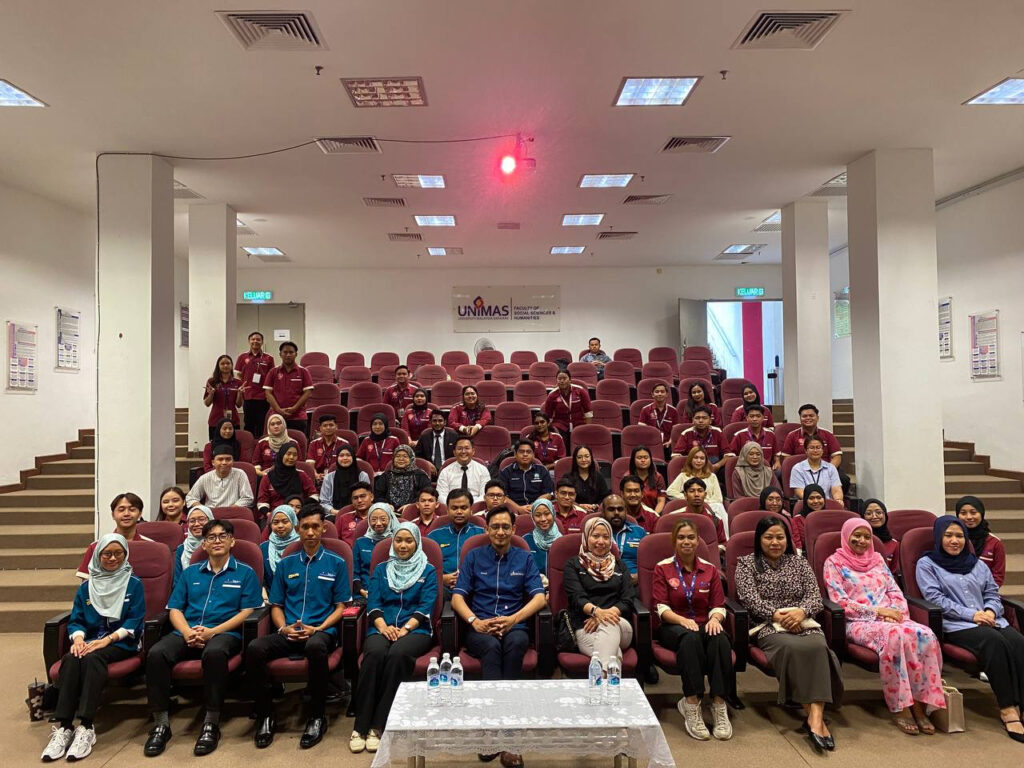
POLGOV Society, and PSSK
FSSH – A partner for social change